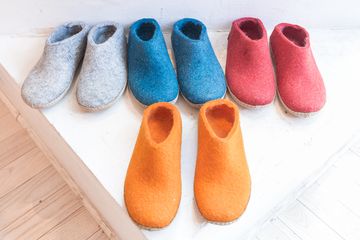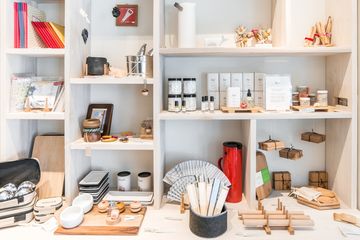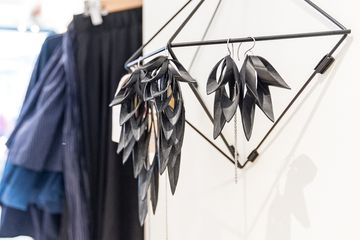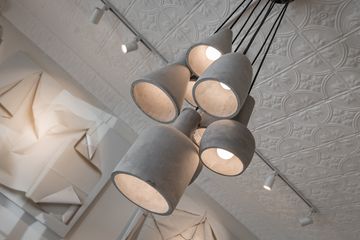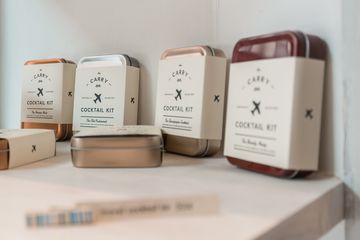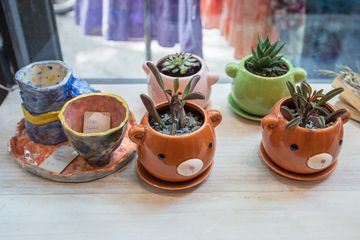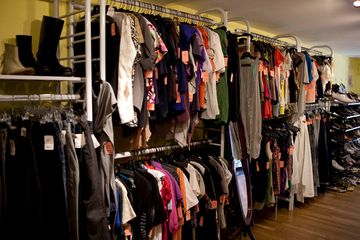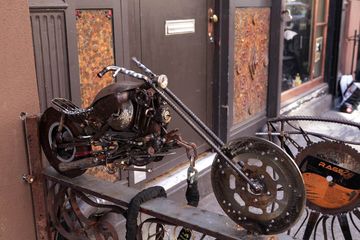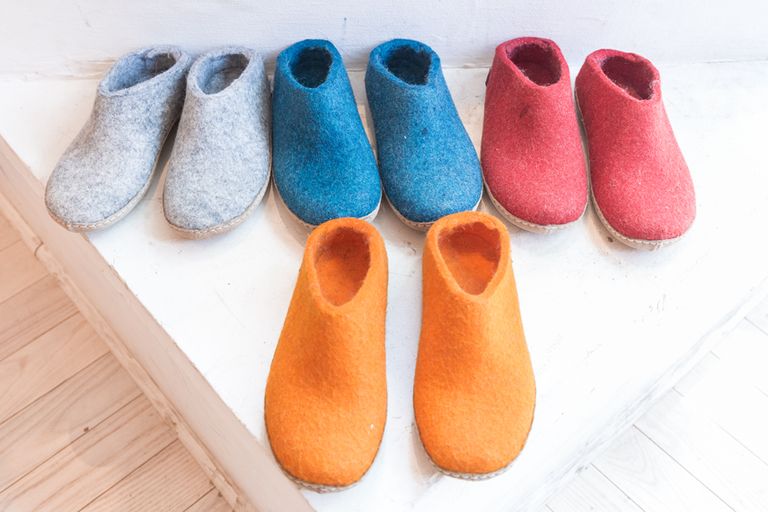
Koan does not fit neatly into any business description. It is part boutique (with a near even split between new and “upcycled” clothing) and part gallery that showcases and sells paintings, ceramics, sculptures, and more. There are even tentative plans of making it part greenery - “Customers could just bring in a seed and I would water it,” explained Manager Young Gun, a Rhode Island School of Design (RISD) graduate. This evolving concept ties in nicely with the store’s mission to support emerging artists of all kinds, and, unlike many galleries, Koan offers a favorable cut to the artist, donating the rest to charity.
On the retail side, many of the accessories come from the owner's travels - she has sourced vintage items in Tokyo, antiques in Denmark, and new designers in Korea. Always on the hunt for something one-of-a-kind, she was happy to highlight a pair of earrings by a Danish designer made from upcycled bicycle tires, as well as Glerups, felt slippers from Denmark, in an assortment of colors. She also takes great pride in emphasizing socially conscious retail and keeping the high-end inventory quirky, fun, and unpretentious. Designers like Matt and Nat, a company that uses vegan leather to fashion backpacks, help fulfill this goal. She has trusted Young Gun, whom she formerly used as a nanny, to manage the store and fill the space with other forms of art.
The personal network that has influenced and created Koan is endless. The main display at the time of my visit, featuring organic shapes that created spatial illusions, was done by Benjamin Langford, also a RISD alum. Fur, a chic line of skin products for sensitive areas by Emily and Laura Schubert, friends of Young Gun, took up prime shelf space. Even the colorful ceramic bowls were handmade by another of her friends, and the rest of the staff members were not only fellow art friends, but also Young Gun’s roommates. “This is basically a hub for people I went to school with,” she confirmed. Young Gun hopes to incorporate more performance art into the store in the future. For the time being, she can be found printmaking in the shop daily during down hours, much to the intrigue of passersby. As Young Gun put it, “Thank you, care.com!”
